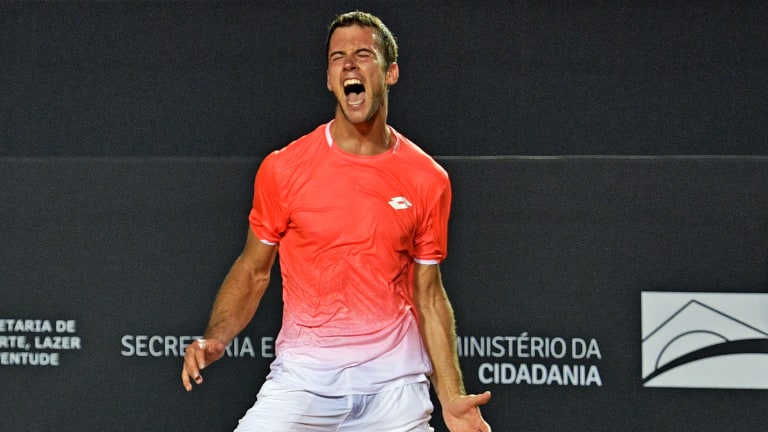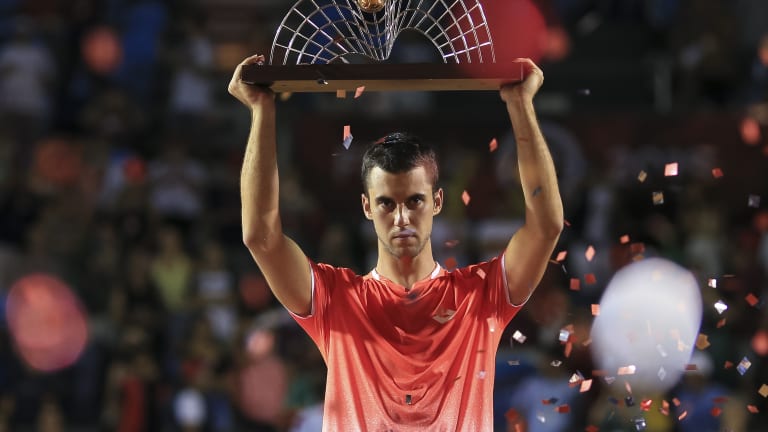He says now, “My Mom gave me so much love and kindness and my father also did so much for me. He was organizing a lot of things for me besides tennis. I just feel that I have to stay strong and don’t let myself be negative or feel sad for too long or anything like that. I am trying to just keep pushing forward and continue doing what I am doing. I have some relatives who are helping me, and my sister and girlfriend have given me a lot of support. I have a lot of people around me who have meant a lot to me.”
Considering the maturity of Djere’s outlook and his commendable ability to deal with life’s bruising setbacks and keep moving forward, it is unsurprising that he has commenced this year so convincingly. Asked to put his wins over Auger-Aliassime at both Rio and São Paulo in perspective, he says, “Everybody knew even before that he is a great player and a great talent. He is so young and now after we played in Brazil he has been in the semifinals of a Masters 1000 in Miami for the first time. He is the youngest semifinalist ever in that tournament, and that is something really impressive.”
Pausing briefly to collect his thoughts, Djere adds, “When I played him in Rio, that was the final so maybe it helped me that I am a little bit older than he is and a bit more experienced. I have to be honest about: clay courts fit me better. I felt with my game on clay it would give me an advantage. I grew up on clay and everything is more natural for me on that surface. I played much more on clay in my younger years. I am playing with a lot of topspin which is good for clay but I am trying to improve my game on hard courts and I think I am playing better and better on that surface. I am thinking a lot about the game on hard courts and how I should play. Hopefully, one day I will be able to play just as well on hard courts as I do on clay. But right now on hard court, Felix is the favorite to be honest [when I play him]. I am sure we will have many more matches.”
That will inevitably be the case. Be that as it may, Djere is a player who must look to impose his game against a wide range of rivals, not simply Auger-Aliassime or anyone else in particular. His goal is to release top of the line tennis on a consistent basis, week in and week out, right on through the rest of the year. The fact that he went deep into the São Paulo draw was a credit to his high standards.
Explaining why that semifinal showing was so important to him after winning the title the previous week, Djere says, “What separates the best from the others is that they can play week after week on a really high level, showing no signs of fatigue, tiredness or anything like that. It is tough to stay focused in tournaments for a long time, over a period of two to three weeks in a row. But I managed to have a really good performance in São Paulo after winning in Rio. That is something I worked a lot on in the past—to try to play every match the best I can. Sometimes before I would lose first round or first two round, but now I guess I have gone to the level where I can keep competing well in the second or third week after a good tournament.”
And yet, the more a rising player like Djere succeeds, the greater his challenge is to maintain a winning pattern. Djere is now a larger target for those ranked much lower. Today, he took on Lorenzo Sonego in the first round of the Marrakech Grand Prix Hassan II tournament on the clay. Sonego is ranked No. 103 in the world but the Italian knows what he is doing on the dirt. Djere suffered a disappointing 6-3, 6-3 loss on his favorite surface.

